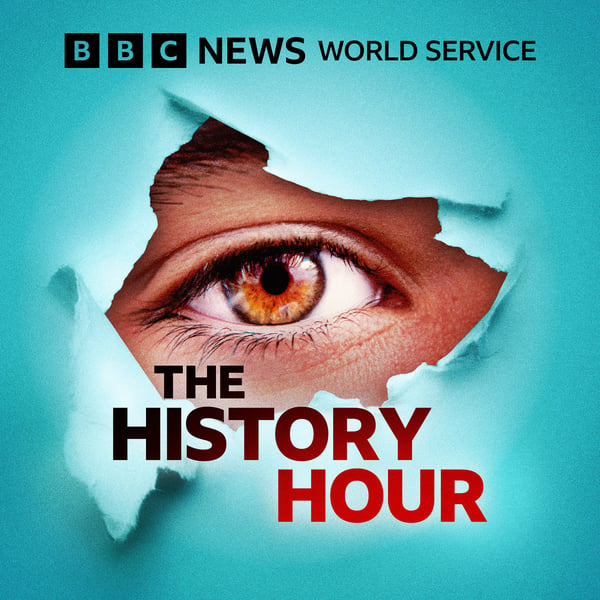The Arab Spring of 2011
The History Hour
BBC
4.4 • 879 Ratings
🗓️ 30 January 2021
⏱️ 51 minutes
🧾️ Download transcript
Summary
In the early months of 2011 a wave of social unrest swept across the Arab world as people protested against repressive and authoritarian regimes, economic stagnation, unemployment and corruption. It began with reaction to the self-immolation of a young market trader in Tunisia, but soon became an outpouring of resentment after generations of fear. On The History Hour, Professor Khaled Fahmy of Cambridge University, helps us unravel the roots of the uprisings, describes what it was like to be there, and looks at why things haven't turned out as the protesters had wanted.
Photo: Libyan anti-Gaddafi protesters wave their old national flag as they stand atop an abandoned army tank in the eastern Libyan city of Benghazi on February 28, 2011.(Credit PATRICK BAZ/AFP via Getty Images)
Transcript
Click on a timestamp to play from that location
| 0:00.0 | Hello and welcome to the History Hour podcast from the BBC World Service with me Max Pearson. |
| 0:07.0 | This week, 10 years on, the Arab Spring. |
| 0:10.1 | The song is a tribute to the power of people when they're united and the thirst for freedom. |
| 0:17.0 | We know that this was such a dangerous situation. We know that the punishment for this would be death. |
| 0:22.4 | But I can say for that moment it was a |
| 0:24.4 | feeling of ecstasy. Would hear how a flame lit in Tunisia spread across North |
| 0:30.4 | Africa and the Middle East, how hope and courage were met with violence and disappointment. |
| 0:36.0 | Witnesses said police acted against demonstrators calling for freedom and an end to corruption. |
| 0:42.0 | We invited our friends in action. freedom and an end to corruption. |
| 0:43.6 | We invited our friends and activists to sign up for Facebook accounts. |
| 0:48.6 | President Hosni Mubarak has decided to step down as president of Egypt. |
| 0:52.5 | And how change has come, but was it the change the protesters wanted? |
| 0:58.6 | That's all coming up in this podcast as we examine the Arab Spring, which to a greater or lesser extent affected more |
| 1:04.2 | than 400 million people. The causes had long been identified, repressive |
| 1:09.6 | authoritarian regimes, economic stagnation, unemployment and corruption. |
| 1:14.5 | Add to that a growing population of the young increasingly dissatisfied with their lot, and |
| 1:19.7 | we had the powder keg that was ready to explode. We'll be hearing from people across the region who experienced |
| 1:24.9 | first hand the historic upheaval, and we start where it all began. Tunisia was the spark. |
| 1:31.4 | Simon Watts has the story behind a Tunisian song that inspired young |
| 1:35.6 | protesters across the region. |
| 1:37.0 | In December 2010 a young fruit seller called Mohammed Wazizi set himself a light |
| 1:48.8 | outside a government office in a small town in southern Tunisia after local officials |
... |
Please login to see the full transcript.
Disclaimer: The podcast and artwork embedded on this page are from BBC, and are the property of its owner and not affiliated with or endorsed by Tapesearch.
Generated transcripts are the property of BBC and are distributed freely under the Fair Use doctrine. Transcripts generated by Tapesearch are not guaranteed to be accurate.
Copyright © Tapesearch 2025.

